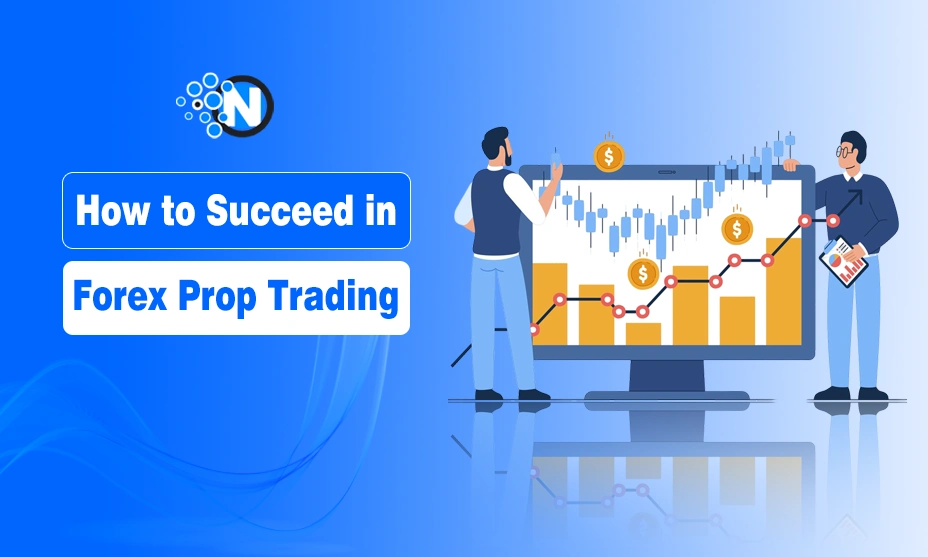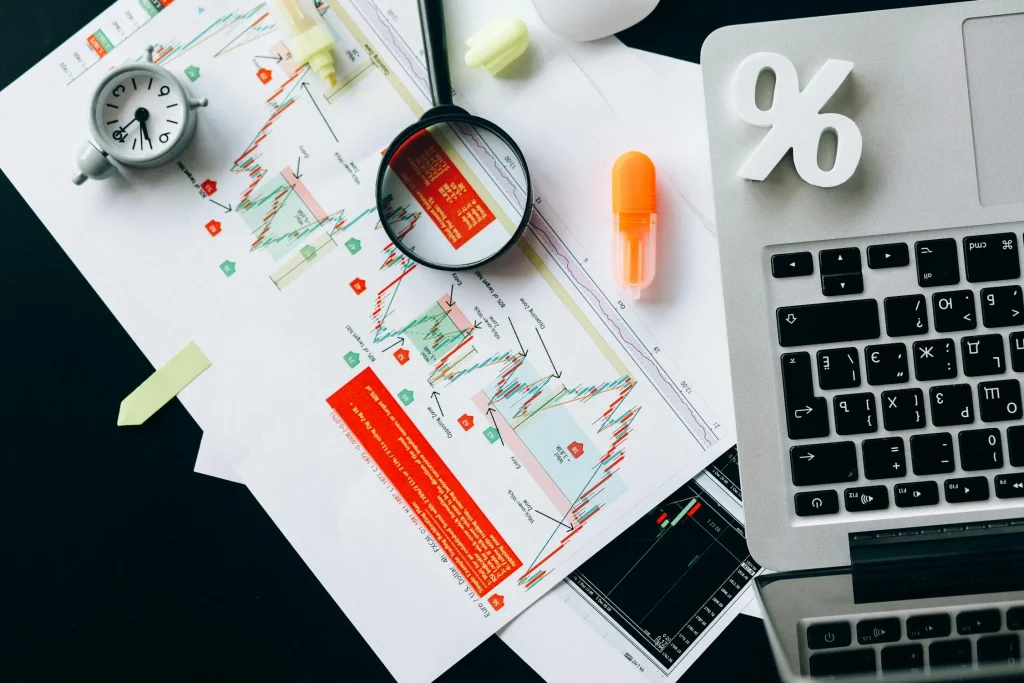How to Succeed in Forex Prop Trading – Tips from Professional Traders

The world of forex trading offers countless opportunities for those with the skill and discipline to navigate its complexities. For traders looking to elevate their careers without risking their large personal capital, prop trading in forex has emerged as an increasingly popular path.
However, it is really not a cup of tea as it involves significant risks and losses. Therefore, it would be best to get some insights and tips from the experts in this field.
This comprehensive guide shares wisdom gathered from professional traders who have successfully mastered the proprietary trading landscape.
Understanding the Fundamentals of Prop Trading Forex
Before learning about strategies for success, it is essential to understand what proprietary trading actually entails in the forex market. Prop trading forex involves using a firm’s capital rather than personal funds to execute trades in the foreign exchange market.
In exchange for providing this capital, prop firms typically take a percentage of profits generated by traders, which creates a mutually beneficial arrangement.
This model has democratized access to professional trading and allowed skilled individuals to manage significant capital without the traditional barriers to entry that existed in previous decades.
The prop trading environment typically offers several key advantages, such as larger capital allocation, professional tools and platforms, risk management frameworks, and often a community of fellow traders.
However, with these benefits come specific challenges and expectations. Prop firms implement strict risk parameters and performance metrics that traders must adhere to. Thus, it creates a unique trading environment that differs significantly from retail trading.

The Evolution of Forex Prop Trading
The prop trading model has evolved considerably over the past decade. Traditionally, proprietary trading occurred primarily within investment banks and specialized trading houses with physical offices where traders would work together.
Modern forex prop trading firms have largely moved online and enabled remote arrangements that connect talented traders with capital providers regardless of geographic location.
This evolution has created unprecedented opportunities for forex traders worldwide, but has also intensified competition. Succeeding in today’s prop trading forex environment requires not just technical trading ability but also exceptional discipline, psychological resilience, and business acumen.
Essential Skills for Forex Prop Trading Success
Professional prop traders consistently emphasize that success in this field goes far beyond simply understanding chart patterns or economic indicators. Several core skills differentiate those who thrive in prop trading environments from those who struggle.
Technical Proficiency and Market Knowledge
While technical analysis is crucial, true expertise involves a broader understanding of market dynamics, including:
- Macroeconomic awareness: Understanding how economic indicators, central bank policies, and geopolitical events influence currency movements.
- Advanced technical analysis: Going beyond basic chart patterns to assess multi-timeframe setups, volume profiling, and market structure.
- Order flow analysis: Identifying institutional activity and liquidity zones where price action is most significant.
- Intermarket correlations: Recognizing how bond, equity, and commodity movements impact specific forex pairs.
Professional traders develop an intuitive grasp of market behavior and refine their strategies through experience and continuous learning rather than rigid systems that can fail in shifting market conditions.
Exceptional Risk Management
Risk management is the cornerstone of prop trading, where strict drawdown and daily loss limits are enforced. Successful traders:
- Calculate position sizes relative to stop-loss levels to control risk per trade.
- Monitor correlation risks to prevent overexposure to a single market force.
- Utilize hedging strategies to mitigate directional uncertainty.
- Adapt risk parameters based on market volatility and personal performance trends.
Rather than focusing solely on profits, professional traders prioritize capital preservation just to make sure they remain in the game during unfavorable periods and maximize opportunities when market conditions align with their strategies.
Psychological Resilience
Prop trading demands strong mental discipline due to performance pressures and the responsibility of managing firm capital. Top traders cultivate:
- Emotional stability: Avoiding impulsive reactions to both gains and losses.
- Execution discipline: Following trading plans regardless of recent outcomes.
- Objective self-assessment: Separating personal worth from trading results.
- Composure under pressure: Handling performance expectations without becoming overly aggressive or hesitant.
Developing this resilience takes time, and many traders use structured mindfulness practices or performance coaching to refine their mental edge.
Adaptability and Continuous Learning
The forex market evolves constantly. Thus, traders have to refine their approaches based on market feedback. Successful traders:
- Regularly review their trading performance, identifying strengths and weaknesses.
- Stay updated through books, courses, mentorship, and discussions with peers.
- Test new strategies in controlled environments before applying them in live markets.
- Maintain a trading journal to analyze both technical decisions and emotional responses during trades.
Prop traders ensure their long term success in ever changing market conditions by committing to growth and adaptability
Strategic Approaches to Prop Trading Forex Success
Beyond fundamental skills, professional traders implement specific strategic approaches that align with the unique demands of proprietary trading environments. These approaches form the framework for consistent success.
Alignment with Firm Requirements
Success begins with choosing a prop firm that aligns with a trader’s natural strengths and style. Day traders benefit from firms with favorable intraday leverage, while swing traders need firms that allow multi-day positions without excessive penalties.
News traders must ensure trading restrictions around economic events won’t hinder their strategy, and scalpers require competitive commissions and fast execution.
Beyond trading style, traders must assess evaluation criteria, profit targets, drawdown limits, and scaling potential to ensure compatibility. Thorough research prevents talented traders from struggling in environments that don’t suit their approach.
Specialized Focus vs. Diversification
Prop traders typically follow one of two paths: specialization or strategic diversification.
Some traders focus deeply on specific currency pairs, such as EUR/USD or USD/JPY, developing in-depth pattern recognition skills unique to those instruments. Others diversify across uncorrelated pairs to reduce dependence on single market conditions.
Both methods can be effective, but professionals make an intentional choice rather than spreading themselves too thin or overly concentrating their risk.
Process-Oriented Performance Metrics
While prop firms prioritize profit targets, successful traders focus on process-driven metrics. These include:
- Execution quality: Evaluating how well entry and exit prices align with intent.
- Strategy adherence: Ensuring consistency in following tested trading plans.
- Risk management tracking: Monitoring position sizing and stop-loss discipline.
- Psychological stability: Assessing emotional control throughout trading sessions.
By emphasizing process over short-term results, professional traders maintain confidence during drawdowns and ensure long-term sustainability in prop trading environments.
Practical Strategies from Professional Prop Traders
Beyond conceptual approaches, professional prop traders employ specific practical strategies to excel in proprietary trading environments.
The Evaluation Phase Strategy
Most modern prop firms require potential traders to pass evaluation challenges before accessing funded accounts. Professional traders approach these evaluations with careful strategic planning:
- They trade more conservatively during evaluations than with established accounts
- Risk management parameters are tightened beyond normal levels (0.5-1% exposure vs. 1-2%)
- They avoid trading during high-impact news events
- Position correlation is carefully monitored to prevent outsized exposure
- Trading frequency is spread across the evaluation period to avoid equity curve volatility
Capital Preservation Focus
Once funded, professional prop traders maintain a capital preservation mindset. They view protecting the firm’s capital as their primary responsibility, with profit generation as a secondary outcome.
Drawdown management receives constant attention, with position sizing often reduced after periods of losses. They implement “circuit breaker” rules that mandate trading pauses after reaching daily loss limits or when market conditions become erratic.
Performance Optimization and Scaling
Professional prop traders strategically work to scale their capital allocations over time. They identify their highest-probability setups through detailed analysis, continuously refine execution with a focus on timing and efficiency, and track performance metrics meticulously.
They maintain communication with firm risk managers and scale position sizing gradually when granted capital increases.
Common Pitfalls in Prop Trading Forex and How to Avoid Them
Even experienced traders encounter challenges in the prop trading environment. Understanding common pitfalls can help aspiring prop traders navigate these challenges more effectively.
Overtrading Under Pressure
One of the most common mistakes involves increasing trading frequency in attempts to reach profit targets or recover from drawdowns. Professional traders counter this tendency by:
- Establishing clear criteria for valid trading opportunities
- Creating trading schedules with mandatory breaks to prevent fatigue
- Setting realistic daily and weekly profit targets
- Implementing “win limits” alongside loss limits
Strategy Drift During Drawdowns
When experiencing inevitable losing periods, many traders abandon proven approaches in favor of untested methods. Professional prop traders prevent strategy drift by documenting trading plans in detail before deployment, regularly reviewing long-term performance data, compartmentalizing strategy testing and live trading, and maintaining trading journals that track adherence metrics alongside results.
Psychological Cycles of Fear and Greed
The prop trading environment can amplify psychological tendencies toward fear after losses and overconfidence after wins.
Professional traders right-size their trading activity to emotional capacity, adjust position sizing based on mental state and recent performance, establish pre-trading routines for proper mindset, conduct post-trading reviews of emotional states, and sometimes employ mindfulness practices to develop awareness of emotional responses.
Conclusion: The Path Forward in Prop Trading Forex
The world of prop trading forex offers extraordinary opportunities for skilled traders to access professional-level capital without the traditional barriers that once limited industry entry. Traders can improve their chances of success by focusing on technical expertise, risk management, psychological resilience, and adaptability and employing firm-specific strategies.
The journey requires dedication, discipline, and continuous improvement, but the rewards extend beyond immediate financial gains. Successful prop trading builds transferable skills, industry relationships, and career optionality that can lead to diverse opportunities within the broader financial markets.




